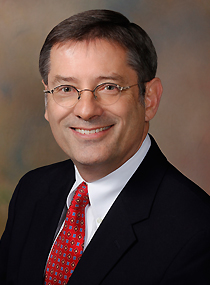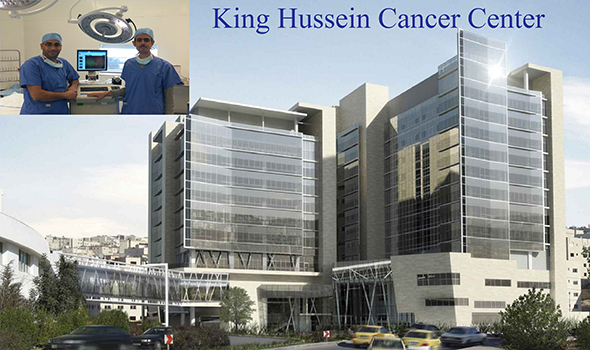New ECF-Sponsored Ophthalmic Pathology Fellowship at Emory Eye Center with Hans Grossniklaus, MD, MBA

We are fortunate to have partnered with Hans Grossniklaus, MD, MBA who is founding director of the Ocular Oncology and Pathology Services at Emory Eye Center. Through this partnership, The Eye Cancer Foundation (ECF) is continuing its work supporting fellowship education for doctors from unserved countries.
Dr. Hans E. Grossniklaus will host one ECF fellow per year from an unserved country or area. The fellowship will focus on ophthalmic pathology, and doctors completing the program will return to practice in their home country. These new eye pathologists will be trained to provide crucial eye pathology services for our emerging retinoblastoma fellows.
Ophthalmic pathology is the subspecialty of surgical pathology and ophthalmology that primarily deals with the diagnosis and characterization of cancer and non-cancerous diseases of the eye, eyelids and orbit. Ophthalmic pathologists are vital in providing practicing ophthalmologists with information about causes, pathogenesis, and the prognosis of ocular diseases.
The new ECF fellowship will provide a $30,000 grant for one year of travel and expenses. Candidates must have completed a residency in ophthalmology. For consideration, they will need to submit a letter of recommendation from their local chairman or hospital director. Included in this letter must be a clear statement that the prospective fellow will be supported to perform ophthalmic pathology upon return to their home country. Failure to return home would make the fellow liable to repay the grant money.
The Emory Eye Center is the largest, most comprehensive clinical eye care facility in the southeast United States. Dr. Grossniklaus is widely recognized as a national leader in eye disease treatment and education, as well as a pioneer in eye disease research. Learn more here.
This ECF-sponsored ophthalmic oncology fellowship provides doctors training they would be unable to get in their home country. Their presence will reduce mortality and save vision in countries that currently lack the resources to effectively diagnose and treat many eye diseases, including eye cancer.
If you are a candidate in an unserved country interested in the fellowship, or would like to recommend a candidate, please contact The Eye Cancer Foundation at (212) 832-8170 or click here to email us.










